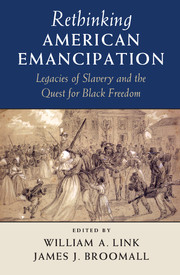
- Cited by 1
-
Cited byCrossref Citations
This Book has been cited by the following publications. This list is generated based on data provided by Crossref.
Portillo Valdés, José María 2017. Sobre María Sierra (ed.), Enemies Within: Cultural Hierarchies and Liberal Political Models in the Hispanic World. Historia Mexicana, p. 2176.
- Publisher:
- Cambridge University Press
- Online publication date:
- November 2015
- Print publication year:
- 2015
- Online ISBN:
- 9781139680998




